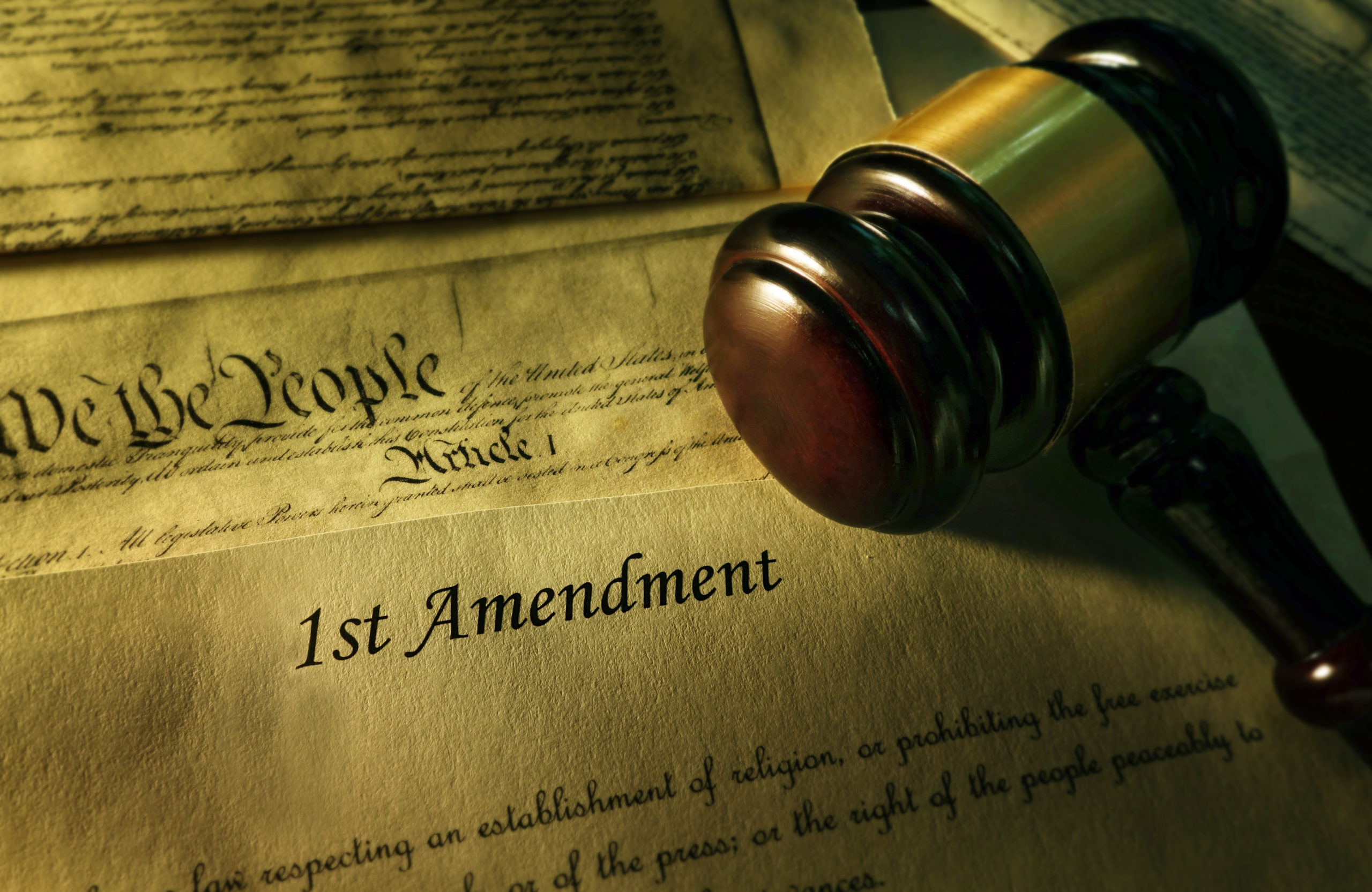Posts tagged amicus brief
Starbucks Baristas File Brief Urging Supreme Court to Allow President to Remove Rogue Agency Officers
October 21, 2025 // The brief concludes with the Foundation’s legal argument that Humphrey’s “cannot neuter the President’s ability to supervise those who exercise substantial parts of [executive] power.” Therefore, the Supreme Court “should make clear that the President’s removal power applies to every agency that exercises executive power, including the NLRB.”
National Right to Work Foundation Files Appeals Court Brief in Support of Trump Order Cutting Federal Union Bosses’ Coercive Power
September 20, 2025 // Brief emphasizes President’s authority under both Constitution and federal law to reduce scope of union monopoly bargaining control

Lower courts ignore Supreme Court precedent to force union payments
August 2, 2025 // The National Right to Work Legal Defense Foundation and the Mackinac Center for Public Policy are urging the U.S. Supreme Court to answer that question. In an amicus brief filed July 24, the two organizations ask the Court to reaffirm and enforce the constitutional standard it set in the 2018 Janus v. AFSCME decision: that no money may be taken from a public employee’s paycheck for a union without the employee’s clear and affirmative consent. The brief supports two public workers who are respectively suing the American Federation of State, County, and Municipal Employees as well as the International Union of Operating Engineers. Marcus Todd and Terry Klee
National Right to Work Foundation Files Legal Brief Defending Wisconsin Act 10 as Union Bosses Seek to Regain Coercive Powers
July 10, 2025 // The Foundation’s amicus brief also states that the Dane County Circuit Court failed to consider whether, instead of striking down Act 10 as a whole, it could have expanded the statute’s pro-employee liberty provisions to cover all public departments to correct the alleged imbalances the court perceives in the law. “[T]he Circuit Court could have expanded the protection of Act 10’s re-certification requirements to all public employees in the State,” the brief says. In addition to Act 10’s benefits for independent-minded public workers, public spending analyses indicate that the law has relieved Wisconsin taxpayers from the enormous financial weight of wasteful union contracts. Some estimates show that Act 10 has saved the state roughly $35 billion since it was enacted.
Right to Work Foundation Submits Legal Brief Opposing Biden “Project Labor Agreement” Rule for Federal Construction Projects
June 5, 2025 // Amicus brief at Eleventh Circuit Court of Appeals exposes rule as discriminating against nonunion workers and contractors in violation of Constitution
NY Starbucks Baristas File Amicus Brief Opposing Reinstatement of Biden-Appointed NLRB Member Removed by President Trump
March 13, 2025 // Starbucks employees have pending federal lawsuit challenging NLRB structure as unconstitutional, argue they could be harmed if member’s removal is blocked
Mackinac Center Joins Amicus Brief Challenging Private Delegation of Government Regulatory Authority
February 13, 2025 // The amicus brief, filed alongside the Institute for the American Worker and the Pelican Institute for Public Policy, argues that delegating regulatory power to private industry groups violates the nondelegation doctrine and due process protections. The case before the Supreme Court challenges the FCC’s reliance on the Universal Service Administrative Company, a private, industry-run entity, to set and administer fees collected from telecommunications companies. These fees are ultimately passed on to consumers. The Fifth Circuit Court of Appeals found this structure unconstitutional, ruling that it improperly allows private entities to exercise government power.
SBE Council Joins Amicus Brief in CWI et al v. DOL on the Independent Contractor Rule
May 6, 2024 // Specifically, the brief addresses why the rule is invalid as it fails to provide fair notice of the conduct necessary to avoid liability; is merely a selective review of case law rather than a reasoned interpretation of statutory text; and provides the agency with maximum enforcement power to regulate in the absence of an employment relationship and to assert FLSA coverage. Fellow organizations filing the amicus brief with SBE Council include the American Hotel & Lodging Association, Associated General Contractors of America, Association of Bi-State Motor Carriers, Inc., American Bakers Association, Independent Electrical Contractors, National Association of Convenience Stores, and the National Association of Realtors.
The Buckeye Institute: Courts Shouldn’t Simply Defer to NLRB’s Interpretation of Facts
March 4, 2024 // “When the National Labor Relations Board sues a private company, the government should not get special treatment on its request for a preliminary injunction,” said David C. Tryon, director of litigation at The Buckeye Institute. “When it granted the government’s request for a preliminary injunction, the Sixth Circuit got it wrong. The proper standard—according to centuries of court practice—is to employ equity and consider the harms to both the company and its employees.”
Right to Work Foundation SCOTUS Brief: Workers Exercising Right to Oppose Unions Isn’t “Harm” to Be Eliminated
March 1, 2024 // Foundation attorneys argue that “the Court must require the NLRB to prove employees were unlawfully coerced not to support a union because, absent such proof, employees have every right to make that choice”
